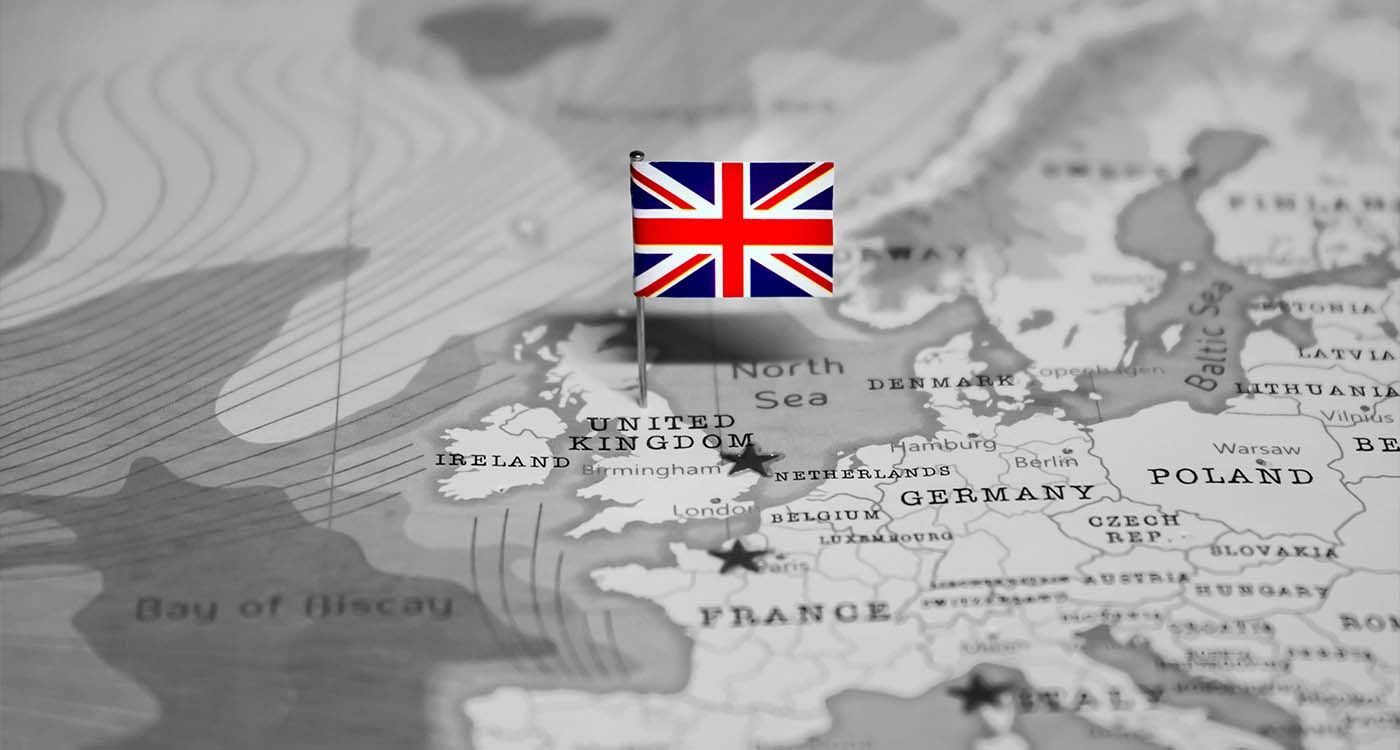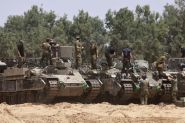- Home
- Middle East
- US Strikes on Fordo: Britain’s Strategic Dilemma

©Shutterstock
For days now, the Middle East has been gripped by a geopolitical crisis of extraordinary intensity. The open conflict between Israel and Iran – ignited by a sweeping Israeli military offensive – shows no sign of abating and is already reshaping the region’s balance of power.
Not only has the balance tipped decisively toward Israel, but speculation is also mounting that the United States may soon intervene directly – potentially through precision strikes on Iranian nuclear sites, including the highly strategic Fordo facility.
While the stated goal of the campaign is to permanently dismantle Iran’s nuclear program, some influential voices, especially in Tel Aviv, are pushing for the far more radical objective of toppling the mullahs’ regime altogether. Yet in a surprising twist, President Donald Trump has reportedly left the door open to diplomacy one last time. According to The New York Times, a final window for talks with Tehran may still exist.
And in this geopolitical realignment – dominated by Washington, Tel Aviv and Tehran – there is another player that deserves attention: London. Often overlooked in the immediate coverage of the crisis, the United Kingdom’s role is proving decisive in more ways than one.
To fully understand the current situation, it’s important to recall that on June 19, Trump announced that he would decide within two weeks whether the US would join Israeli strikes on Iran. His spokesperson, Karoline Leavitt, framed the delay as a bid to keep negotiations open, with the White House still seeing a “substantial” chance for dialogue with Tehran. The New York Times described the move as “buying time” – a strategy that could also be used to gauge the psychological pressure exerted by Israel’s bombardments on Iran.
However, The Washington Post highlights a “recurring pattern,” in which such announcements seldom lead to concrete action. Meanwhile, Admiral Stavridis told CNN this could be “a clever ruse” designed to catch Iran off guard. British Foreign Secretary David Lammy, following talks with his American counterpart Marco Rubio in Washington, said “a window exists” for a diplomatic solution. Whether the outcome is military or diplomatic, one thing is clear: the UK will play a crucial role, one way or another.
Strategic Assets and Military Posture: Britain’s Regional Presence
Amid President Trump’s consideration of a possible direct military intervention to assist Israel in targeting Iran’s nuclear program, attention is turning to the UK’s role in the unfolding crisis. While London has so far maintained a cautious public stance, it remains a crucial strategic player in the region.
The UK’s network of military bases across the Middle East and the Indian Ocean could prove vital if the conflict escalates. Of particular significance is the Diego Garcia base – a remote island in the Indian Ocean jointly operated by Britain and the US. Though small in size, Diego Garcia’s strategic value is considerable. Located some 3,700 kilometers from Iran, the base could serve as a launch point for B-2 Spirit bombers, the only aircraft capable of deploying the 13.6-ton GBU-57 Massive Ordnance Penetrator, known as the “mountain-buster.”
According to a US military source quoted by The Times, “if the United States were to use Diego Garcia, they would need the United Kingdom’s permission – and naturally, we would ask for it, since the base is under British sovereignty.” Another American official added, “This is nothing new: the UK would be informed of any American strike, even if Diego Garcia isn’t involved. They are our closest ally, have stood by us in our darkest hours, and we honor those friendships. The President holds the Prime Minister in very high regard and has great trust in him.”
While B-2 bombers could reach Iran from their Missouri base with aerial refueling, deploying from Diego Garcia would offer a clear strategic edge.
The UK also maintains two key strategic assets on the Mediterranean island of Cyprus. The first is the Royal Air Force (RAF) base at Akrotiri, currently reinforced with nearly twenty Typhoon fighter jets. The second, more discreet but equally critical, is the signals intelligence (SIGINT) station atop Ayios Nikolaos mountain, known as “Ayia Nik,” located within the British Sovereign Base Areas on the island.
For many years, the British Army has also used the island as a staging point for its “spearhead battalion,” a rapid deployment force ready to respond to contingencies in the Middle East. The RAF’s Typhoons are already engaged in Operation Shader, conducting surveillance and occasional strikes against ISIS and al-Qaeda targets in Syria and Iraq. Last year, amid a brief flare-up between Israel and Iran, British fighter jets operating from Cyprus reportedly took part in intercepting Iranian missiles headed toward Israel.
British surveillance aircraft have also been highly active in the region, particularly over Gaza and Lebanon since October 7, 2023. Reports indicate that in the past six months, around 80 reconnaissance flights were carried out off the Lebanese coast, while more than 150 missions took place over or near Gaza. The Royal Navy is also playing a key role in securing vital maritime routes, particularly in the Persian Gulf and the Strait of Hormuz, collaborating closely with US naval forces to neutralize threats from naval mines. Beyond that, the UK maintains a modest military footprint in Iraq, with roughly a hundred troops deployed, and retains strategic access to a port facility in Duqm, Oman – strengthening its ability to project power across the region.
Diplomatic Dilemma: Between Loyalty and Prudence
The UK faces a precarious balancing act, caught between unwavering Atlantic loyalty and the need for diplomatic caution. With significant military forces deployed across the region and the close ties binding Washington and London, it’s no surprise that the White House is considering seeking British support – primarily symbolic – in the event of strikes against Iran.
According to The Daily Telegraph and The Times, this scenario was a key topic at an emergency COBRA meeting, where senior officials weighed multiple options: a total refusal, granting access to the Diego Garcia base, providing logistical backing or committing to direct military involvement.
For now, a limited offer of support appears to be the most likely outcome. Yet, sources say some ministers are deeply concerned about the fallout of turning down Washington, warning it could strain the “special relationship.” There are also fears that British forces stationed in Cyprus, Iraq, Oman and at RAF Akrotiri could become targets if Iran retaliates.
British Attorney General Richard Hermer has reportedly questioned the legality of Israel’s preemptive strike on Iran, stressing that any UK involvement should be confined to defending its allies. He warned that deeper engagement could trigger a major political backlash in the UK.
With much at stake, British officials are stepping up diplomatic efforts to convince President Trump that a negotiated settlement remains possible – one that could avert US military action, limit British involvement and reduce the risk of Iranian retaliation.
This cautious stance appears to resonate within the US administration as well, with Vice President JD Vance, who, according to The Wall Street Journal, is firmly opposed to any military action against Tehran.
With the prospect of a strike on Iran still uncertain, the UK’s potential role in any military intervention is gradually coming into focus. Whether by authorizing the use of Diego Garcia, providing logistical support or fully joining forces with the US, London is unlikely to remain on the sidelines.
Yet, any form of involvement comes at a cost: political fallout at home, potential retaliations against its regional bases and greater exposure of its deployed forces. This is why British diplomatic efforts have intensified, driven by a strong desire to prevent escalation.
Recent weeks have seen a series of high-level talks – from a private discussion between Lammy and Rubio in Washington to a direct exchange between Keir Starmer and Trump at the G7 in Canada. The clear objective: to avert a high-risk military intervention while irreversibly curbing Tehran’s nuclear ambitions.
A quiet but crucial player, the UK is working behind the scenes to shape the crisis it can no longer afford to ignore.
Read more




Comments